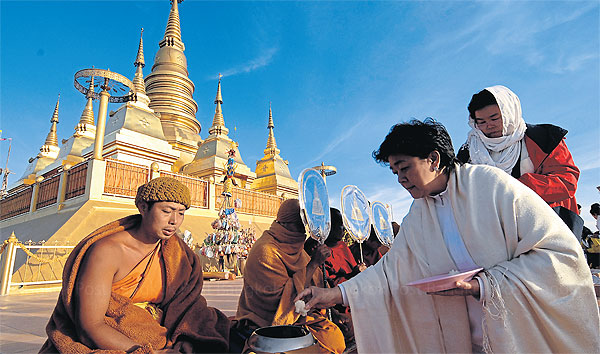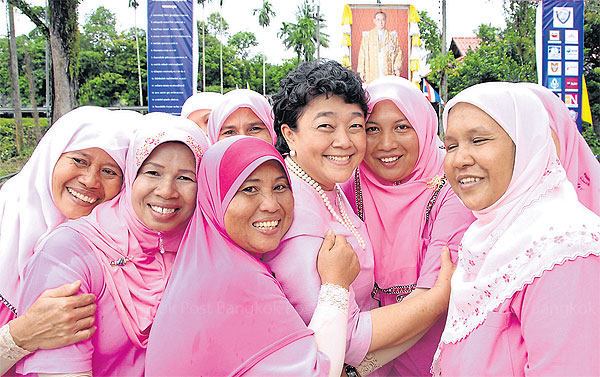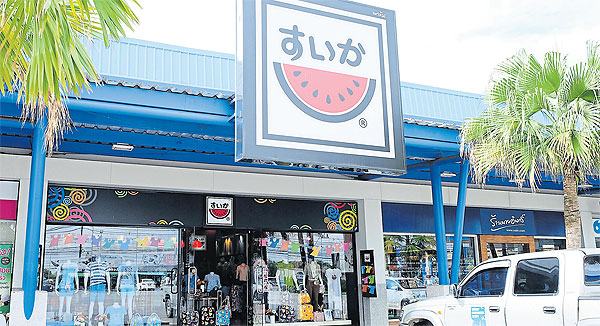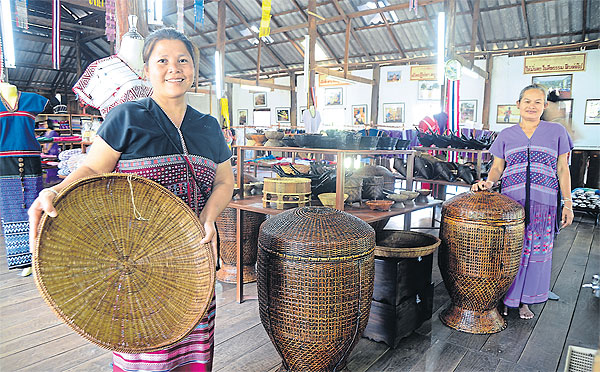She said the aim of the project was to promote peace and harmony in the strife-torn southern border provinces.
At that time, 11 women from the village were recruited to attend an embroidery course arranged by the firm so they could embroider the King’s emblem on the Tangmo T-shirts.
“I spent a month there supervising the local women on needlework until eventually they were able to attain the skills of a seamstress. I wasn’t afraid (of violence) because I believe I went there to help people.”
Before the training course was over, the firm also built a playground for children, fish ponds and a fertiliser plant. They were built by people in the community in accordance with the sufficiency economy philosophy of His Majesty the King.
After Narathiwat, Ms Amara headed north to Lamphun where she began a similar project to help the ethnic Karen Paka-Kyaw highlanders in Li district.
But this time, the King’s emblem was to be sewn on traditional Paka-Kyaw apparel so that villagers could be dressed in their own indigenous clothes for the occasion and make a living by selling them.
“The living conditions of the native highlanders improved. At the end of their daily farming, villagers spent their time weaving and sewing Tangmo clothes as a sideline,” Ms Amara said.
She said revenue the company earned from the project in Lamphun was donated to the construction of 1,000 weirs across the country.
As for the material used in making the Tangmo clothing items, Ms Amara said her products are woven from 100% cotton, which does not trap heat, making them comfortable to wear.
During the early stage of her business, Mrs Amara noticed local T-shirts were mostly produced with TC fabric, a blend of polyester and cotton.
However, cotton textile was used for manufacturing clothes for export only.
In Thailand, garments made of 100% cotton were imported from overseas and available only at department stores and were steeply priced, she added.
Ms Amara then saw a business opportunity in producing fine-quality clothing which was also affordable to the masses. This strategy has helped increase turnover of her products.
She said her recruitment reflects her philosophy of doing business.
She does not consider employees so much on the basis of their educational background. The businesswoman offers jobs to those who are family breadwinners first.
Siam Hands’ annual profit is divided into three portions: A donation to Buddhism; a contribution to royally initiated projects; and a reserve for maintaining and repairing industrial machinery at her firm.
“We want our employees to realise what they have done is not only working to earn money for their families, but they also play a vital role in creating top-grade apparel for customers, promoting Buddhism along with developing their own country.”



